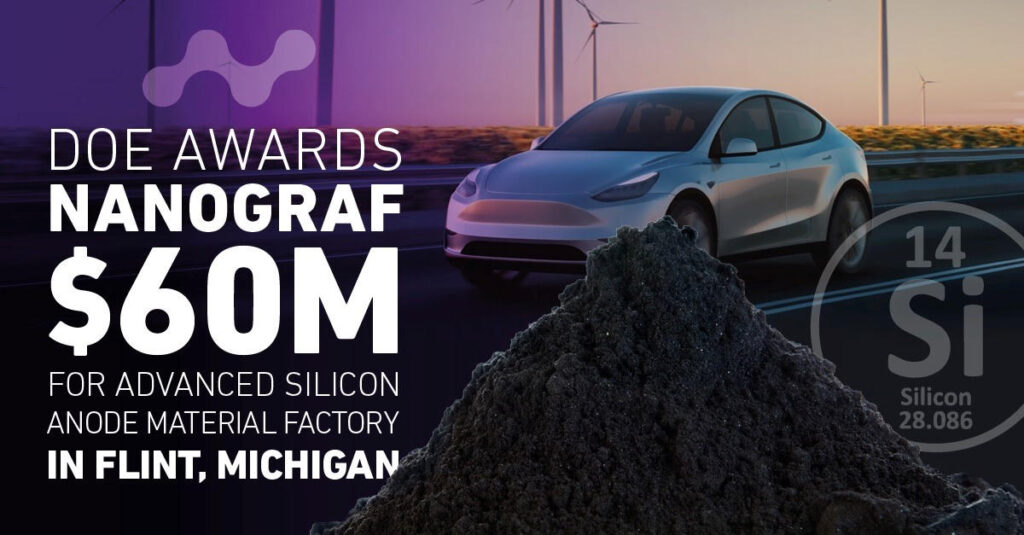NanoGraf, backed by TechNexus Venture Collaborative, helps build longer-lasting and higher-power lithium-ion batteries.

NanoGraf, a startup working to make lithium-ion batteries lighter and longer lasting, hauled in funding from the federal government to open a new facility in Flint, Michigan.
The deal: NanoGraf announced that it was awarded a $60 million grant from the U.S. Department of Energy to retrofit an existing manufacturing facility in Flint that will produce its proprietary silicon anode material. At capacity, the facility will produce 2,500 tons of silicon anode per year, which is enough material to supply 1.5 million electric vehicles each year.
It’s part of a combined $175 million investment, with additional funds from NanoGraf, that will create one of the world’s largest silicon anode facilities, the company said.
What they do: NanoGraf’s advanced material enables longer-lasting, higher-energy, and higher-power lithium-ion batteries. The startup has more than 50 customers from consumer electronics to household appliances to power tools. Its battery tech also powers handsets used by U.S. military soldiers in the field.
The Chicago-based startup will now operate three battery material production facilities, bringing its total manufacturing footprint to over 414,000 square feet.
Funding: In addition to government funding, NanoGraf raised a $65 million Series B round of venture funding last year from TechNexus, Volta Energy Technologies, CC Industries and others.
They said it: “As a U.S.-based and U.S.-founded company, we’re committed to strengthening the domestic battery supply chain—and this factory is a big step forward,” Francis Wang, CEO of NanoGraf, said in a statement. “Our expansion into Michigan will allow us to leap to larger scale production to meet national demands for high-performing EV batteries and consumer electronics.”
